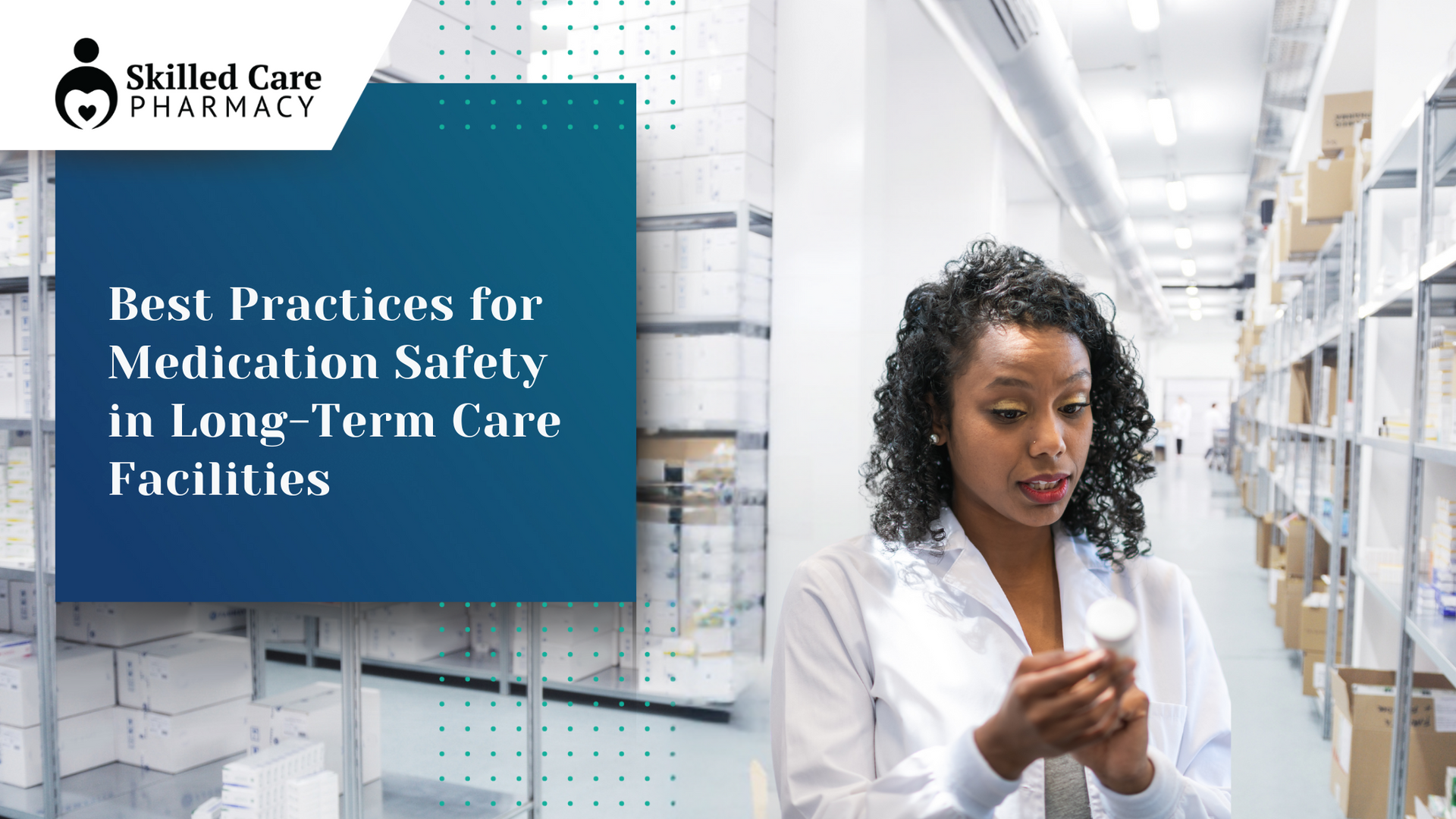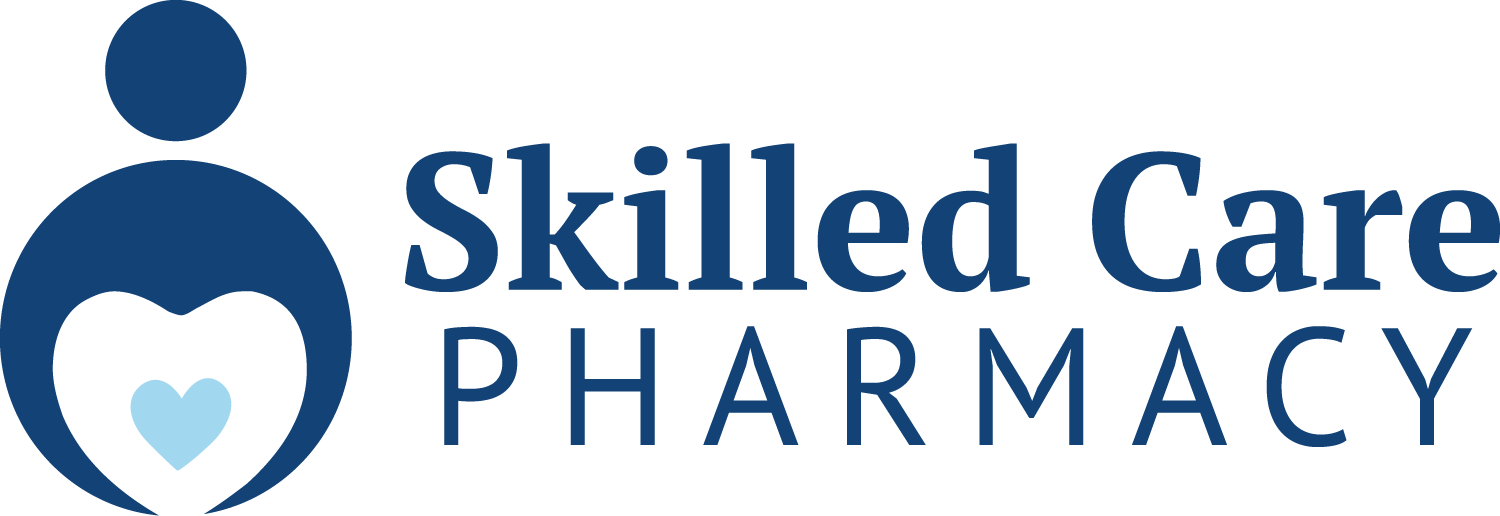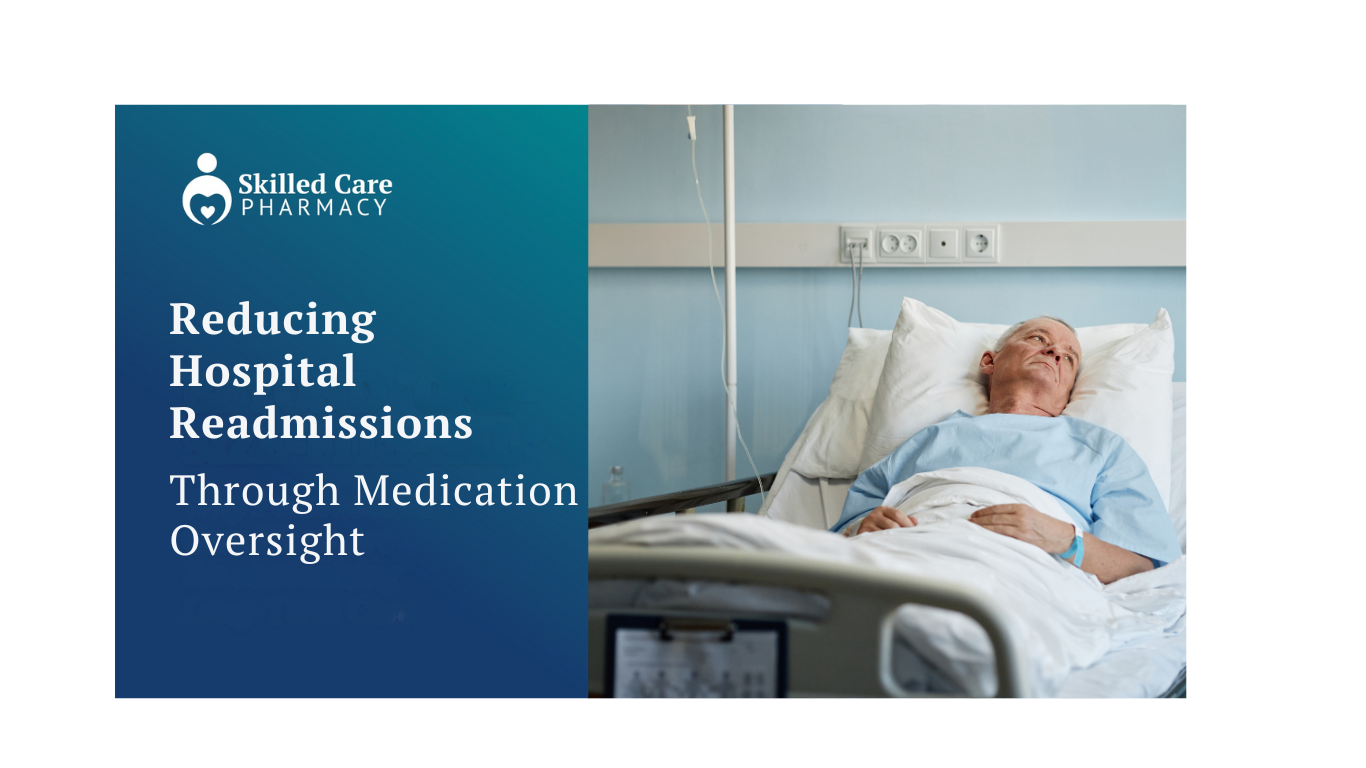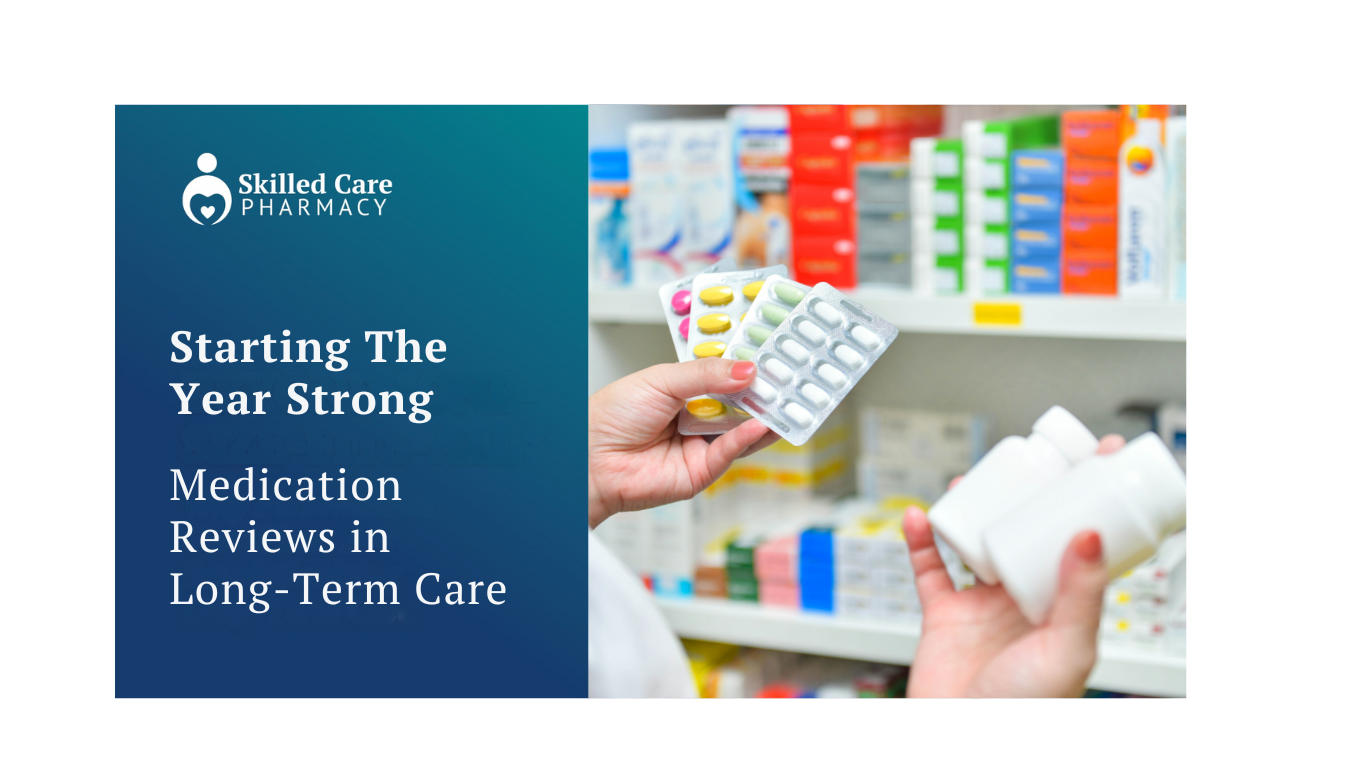Discover five key best practices to improve medication safety in long-term care settings. Learn how your facility can reduce errors and enhance resident care with support from Skilled Care Pharmacy.

Ensuring medication safety in long-term care (LTC) environments is more than a regulatory obligation, it is a cornerstone of quality care. With multiple medications, changing prescriptions, and vulnerable populations, the risk of medication errors is high. At Skilled Care Pharmacy, we partner with LTC facilities to reduce risk and promote consistent, high-quality medication management.
Here are five best practices to strengthen medication safety in your facility:
1. Standardize Medication Administration Processes
Inconsistencies in how medications are prepared, administered, and documented can lead to critical errors. By implementing a standardized medication administration process, including double-checks and barcode scanning, your team can reduce variation and ensure every dose is delivered accurately.
Tip: Use custom-designed medication administration records (MARs) to clearly document therapy plans, diagnoses, and side effects. These records should be updated daily.
2. Conduct Routine Medication Reviews
Regular medication reviews, especially for residents with polypharmacy (5+ prescriptions), help identify potential risks like drug interactions or unnecessary medications. Pharmacists should collaborate closely with care teams to evaluate effectiveness and recommend adjustments.
Bonus: Partnering with a pharmacy that offers routine clinical reviews can help reduce rehospitalization rates and adverse drug events.
3. Invest in Staff Training and Education
Continuous education for nurses and caregivers ensures your team is aware of proper medication protocols, new treatments, and common risks. Even minor changes in labeling or packaging can lead to confusion without training.
Training topics to prioritize:
- High-alert medications
- Controlled substances handling
- Proper storage and disposal practices
4. Embrace Technology for Accuracy and Oversight
Modern LTC pharmacies now offer digital tools that enhance medication management. Skilled Care Pharmacy, for example, provides facilities with integrated information management systems that automatically update resident medication records and flag potential safety issues.
These systems help reduce manual entry, improve accuracy, and provide a clear audit trail in the event of an issue.
5. Communicate Across Disciplines
Medication safety is not just a pharmacy issue, it is a team effort. Ensure open lines of communication between physicians, pharmacists, nurses, and families. Everyone involved in a resident’s care should have access to the same, up-to-date information.
In Summary
Medication safety in long-term care requires the right systems, ongoing training, and reliable pharmacy partners. At Skilled Care Pharmacy, we are committed to supporting your facility with precise medication management, innovative tools, and around-the-clock support.
If your team is ready to enhance safety and streamline workflows, contact us today to learn more about our pharmacy solutions.




